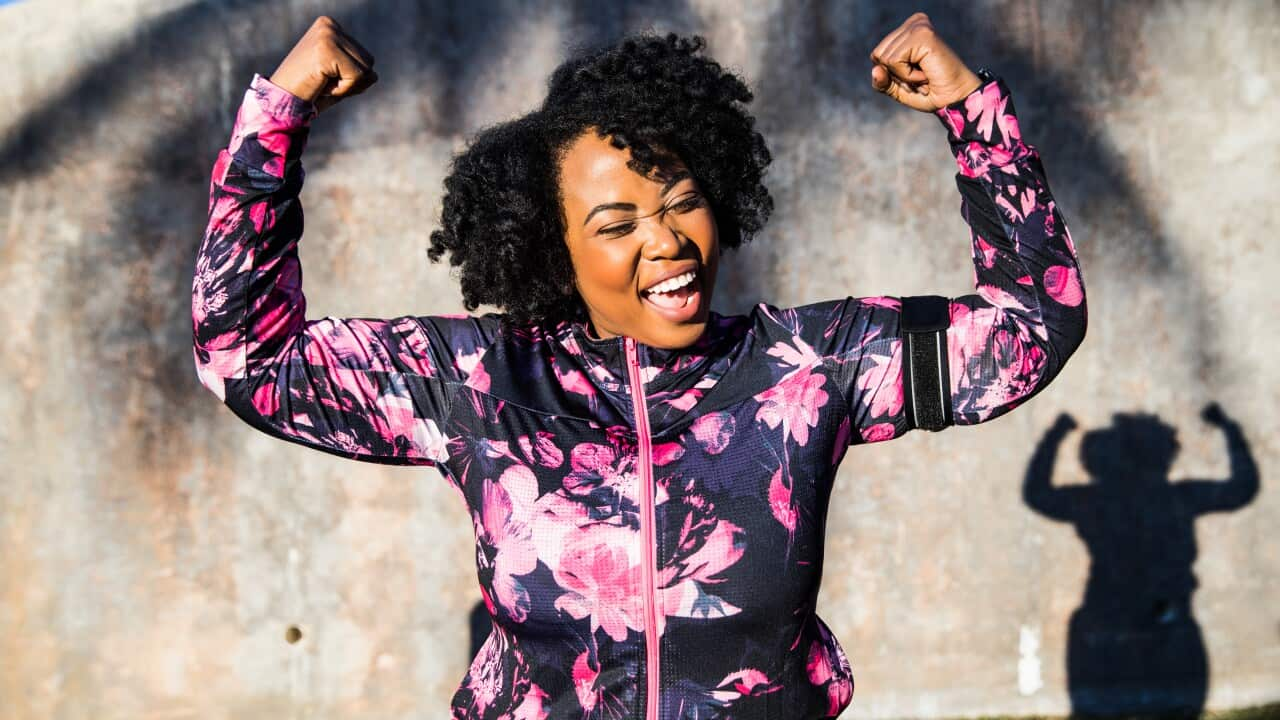This story is part of the SBS health and wellbeing initiative Mind Your Health. Click to visit the portal, featuring digital stories, podcasts and videos in English and multiple languages.
Physical activity and maintaining a balanced diet are two things you can do on a daily basis to maintain good health, says Professor of Physical Activity and Health Anne Tiedemann.
Others include limiting your alcohol consumption, cutting out smoking and keeping socially connected.
1. Physical activity
Prof Tiedemann says there is a multitude of evidence that being physically active promotes not only physical, mental and social health, but also prevents the onset of disease in older age.
What a person does today or this week can be of benefit down the track, the expert from Sydney University explains.
Regarding how much physical activity an individual should take part in, Prof Tiedemann points to the , which provide recommendations depending on age and whether a person has a chronic disease or a disability.
“The main message with physical activity is that it's good for everyone, no matter what age or level of disability we're at.
“And even if you can't meet the amount of physical activity that's recommended in the guidelines, we also know from really clear research that any amount of exercise or physical activity is beneficial and that doing a little bit more than you currently do will bring health benefits to you."
She explains that physical activity can come in a number of different forms and doesn't have to be a structured sport or exercise group.
“It can be your leisure time going out for a walk, or it can be your domestic chores, so doing activities around the house, gardening, all of those things are promoting health.”
2. Maintain a balanced diet
Prof Tiedemann says it’s important to maintain a balanced diet to lower long-term disease risk factors and reduce the risk of obesity.
Good nutrition in your diet is good for fuelling your body, keeping bones strong, and feeling energised.
“All of those things are really important, eating a balanced diet, not too much processed food and not too much sugar, which is a big issue in society now.”
The provide information about the types and amounts of foods, food groups and dietary patterns.
It encourages Australians to enjoy a wide variety of nutritious foods from the five food groups, while limiting the intake of foods containing saturated fat, added salt, added sugars and alcohol.
3. Limit your alcohol and cut smoke out
“We know that those are really important lifestyle risk factors for many diseases,” Prof Tiedemann says, regarding the need to limit alcohol and cutting out smoking.
Alcohol consumption contributes to 3 million deaths each year globally as well as to the disabilities and poor health of millions of people, according to the World Health Organization.
Australian Institute of Health and Welfare (AIHW) data shows that there were 1,452 alcohol-induced deaths registered in 2020, the majority (73 per cent) were recorded for males.
The , revised in 2020, set out guidelines for consumption to reduce health risks from drinking alcohol.
Furthermore, the Cancer Council recommends , including incorporating alcohol-free days and using water to quench your thirst.
Smoking is estimated to kill almost .
4. Keeping socially connected
Prof Tiedemann says loneliness is a “big problem” in society, and that can happen even when a person is surrounded by others, as there’s often a “lack of connection”.
“It's about feeling connected to those around you and feeling connected to the society that we live in.
“It comes down to feeling like you mean something to other people, and also showing that you care about other people. All of that human connection is really important.”
She says connection can be attained in a number of ways, including by volunteering and being active in the community.
“[Volunteering] can be a way of promoting social connection with other people being part of a group and having sort of combined purpose together can be something so a lot of people find sport is really good for that.
“You've got a team-based sport, you're all aiming for the same sort of outcome and being connected in that way.”
However, she explains that some people enjoy being alone.
“Even if [these individuals] are alone, they still have that connection through other means.”
Beyond Blue by utilising various technologies including Skype, Zoom, FaceTime and apps such as House Party allow people to connect in groups via video chat.
The organisation also recommends scheduling regular social catchups, including a book club, trivia night, family dinners, dance parties or just evening chats with friends.
5. Check in with yourself and those you care about
Lockdowns during the COVID-19 pandemic were a good example of why there’s a need to look after yourself and the people you care for, Prof Tiedemann says.
“I think that's really important. I know myself, as an example, would worry about older parents who are in lockdown or making sure they've got what they need.
“But you often don't realise that you’re carrying quite a lot of stress and anxiety. And so, just checking in on yourself, and making sure you're doing things that are good for your own well-being is really important.”
The a person should check in on weekly to keep on top of their mental health, including their feelings, body, sleep and thoughts.
Readers seeking support can contact Lifeline for 24-7 crisis support on 13 11 14, Suicide Call Back Service on 1300 659 467 and Kids Helpline on 1800 55 1800 (for young people aged 5 to 25). More information is available at and
supports people from culturally and linguistically diverse backgrounds.


